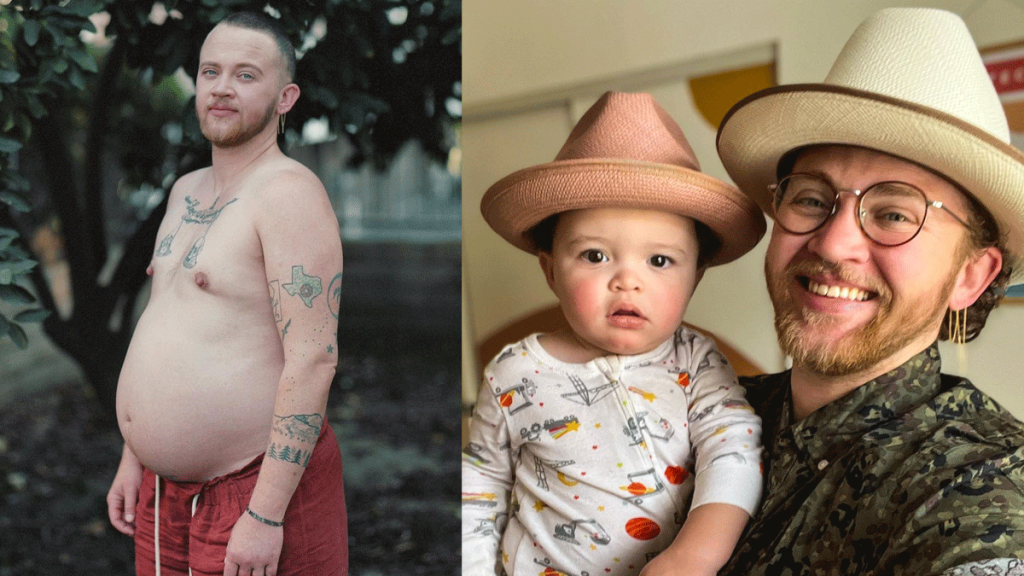
Using someone’s preferred name and pronouns is one of the simplest yet most powerful acts of respect. Still, in many environments—especially in healthcare—traditional gender expectations often overshadow personal identity. This was the reality for Bennett Kaspar-Williams, a transgender man who welcomed his son, Hudson, in 2020. Despite being open about his identity and using male pronouns, he was constantly misgendered as “mother” by medical staff during his C-section, a moment that should have been filled with joy rather than distress.
Video: Trans Man Who Gave Birth To A Son Criticizes Medical Staff For Misgendering By Calling Them A Mother
The Beginning of a Journey
Kaspar-Williams recognized he was transgender in 2011 and began his transition in 2014. He underwent top surgery but chose not to pursue bottom surgery, which meant he could still carry a child. When he and his partner decided to have a baby, the choice brought deep happiness. Yet, the constant misgendering throughout pregnancy highlighted how strongly society clings to the belief that only women give birth. Even when medical records reflected his male identity, outdated assumptions continued to cause pain.

Separating Gender from Childbirth
For Kaspar-Williams, the hardest part wasn’t pregnancy itself—it was the language and roles forced upon him. He explained that being called “mother” created dysphoria, as it was never a role he identified with. To him, carrying a child was purely a physical process, not a reflection of gender identity. This perspective gave him peace, allowing him to embrace fatherhood without conforming to traditional labels. His message is clear: not all women give birth, and not everyone who gives birth identifies as a woman.

Another Story: Freddy McConnell
The experience of Freddy McConnell, another transgender man who gave birth in 2019, mirrors and contrasts Kaspar-Williams’ journey. Featured in a documentary, McConnell described how transitioning gave him the freedom to truly live. When he chose to have a baby, it wasn’t about identity—it was about pragmatism. He used his body’s capabilities to achieve his goal of biological parenthood. Unlike Kaspar-Williams, McConnell found medical staff to be supportive and affirming, making his childbirth experience powerful and positive.
Redefining Fatherhood
Both men are now raising their children with pride. Kaspar-Williams embraces being called “dad,” saying, “Nothing feels stronger than being able to say I’m a dad who created my own child.” He looks forward to the day his son Hudson understands that his father carried him, believing this truth will help normalize diverse family structures. McConnell shares the same pride, showing the world that fatherhood isn’t confined by traditional definitions.

Challenging Outdated Norms
These stories are more than personal experiences—they’re acts of social change. By openly sharing their journeys, Kaspar-Williams and McConnell highlight how gender roles in parenthood are outdated and restrictive. Their voices push society to recognize that parenthood isn’t about labels, but about love, commitment, and responsibility. The fact that they carried their children doesn’t make them less of fathers; it makes their stories even more extraordinary.

The stories of Bennett Kaspar-Williams and Freddy McConnell prove that family doesn’t have to fit into rigid molds. They remind us that respect starts with using the right words and acknowledging identity. Parenthood is about nurturing, not about conforming to outdated ideas of gender. As these fathers raise their children proudly, they pave the way for a more inclusive and compassionate understanding of what it means to be a parent.